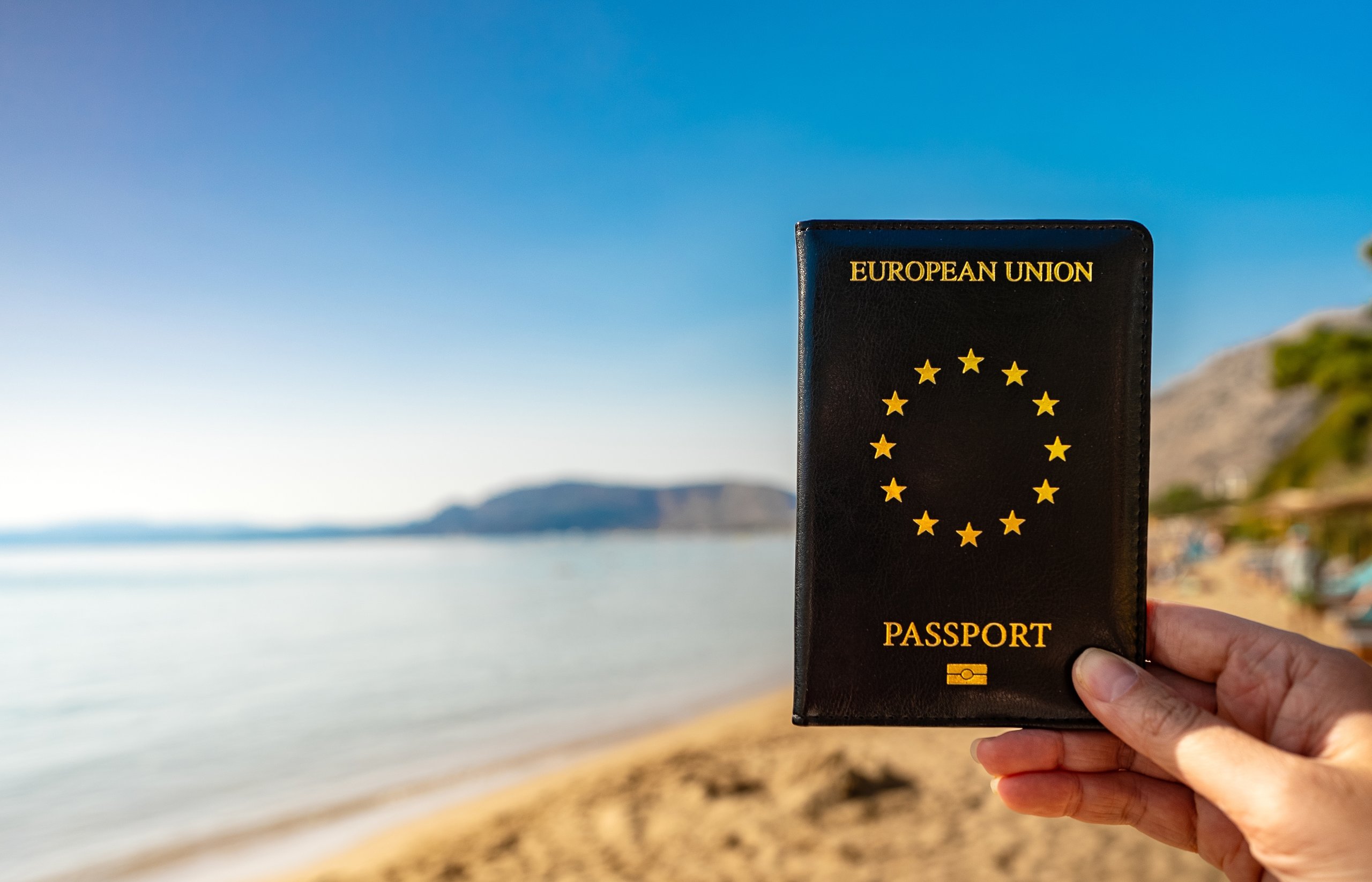For many UK and US nationals, tracing family roots could be the simplest way to unlock a life in Europe. Thanks to rules around citizenship by descent, your parents’, grandparents’ or even great-grandparents’ heritage might allow you to apply for an EU passport – and with it, freedom to live, work and travel across 27 countries.
Since Brexit, British citizens must usually apply for a visa to live in Europe. But if you can prove your family connection to an EU country, the process could be far easier. In this guide, we explore how citizenship by descent works and highlight the most accessible countries, including Spain, Ireland, Italy and Poland.
Contents
How EU citizenship by descent works
Citizenship by descent, also called jus sanguinis, allows nationality to pass down the generations. The rules vary by country, but in many EU states your right to apply extends to parents, grandparents or even great-grandparents. Documentation is essential – birth, marriage and naturalisation records all form part of the process. Each country has its own requirements and procedures, but any EU passport grants the same rights within the bloc.
The benefits of an EU passport
Becoming an EU citizen brings wide-reaching advantages. With an EU passport you can:
- Live, work and study in any of the 27 member states without a visa
- Access public healthcare and social benefits in your chosen country
- Travel freely across Europe without border restrictions
- Enjoy long-term stability for your family and property plans
Which countries make it easiest?
Not all EU nations treat ancestry equally. Some restrict rights to parents only, while others extend eligibility much further. The table below highlights some of the easiest options for UK nationals.
| Country | Who qualifies? | Notes |
|---|---|---|
| Ireland | Parents or grandparents born in Ireland | Apply via the Foreign Births Register; strong historic UK and US–Ireland family ties |
| Italy | Unlimited generations on paternal line (since 1861), maternal line after 1948 | Extensive eligibility but documentation is complex |
| Poland | Parents, grandparents or great-grandparents | Proof of no loss of citizenship required |
| Spain | Parents or grandparents | Grandchildren law benefits descendants of Civil War exiles |
Ireland
With millions of UK residents claiming Irish heritage, this is often the most straightforward route to EU citizenship. If you have even one Irish grandparent, you could qualify for Irish nationality and an Irish passport.
Italy
Few countries match Italy’s generosity. If you can trace your paternal line back to 1861, you may be able to get an Italian passport – but be prepared for bureaucracy.
Poland
Citizenship can pass through several generations, but you’ll need to show that your ancestors never renounced their Polish nationality – a key requirement if you’re considering applying for a Polish passport.
Spain
Generally limited to children of Spanish parents, but recent reforms under the Democratic Memory Law allow many grandchildren of exiled Spanish-born citizens to reclaim nationality — even without documented exile, making getting a Spanish passport more accessible for descendants abroad.
Dual citizenship explained
Many applicants hope to keep their UK or US passport as well as their EU one. Some EU countries, including Ireland, Italy and Poland, recognise dual nationality, so you don’t need to give up your original passport. Spain, however, may require new citizens to renounce their original nationality – though in practice enforcement can be inconsistent. Always confirm the rules with the relevant government or an immigration lawyer.
How else can I buy property in the EU?
If an EU passport isn’t an option, there are other ways to achieve your European property goals.
If you have family already living in the EU, you may be able to buy property through them or even explore residency options based on familial ties.
Many EU countries welcome foreign investors and have visa schemes to entice buyers. Some of these include:
- The non-lucrative visa – which most retirees use
- The digital nomad visa – ideal for remote workers
- Various business visas – for self-employed people
Non-lucrative visas
These visas are ideal for retirees who have enough savings or passive income to support themselves. Spain’s non-lucrative visa, for instance, allows you to live in the country without working. You’ll need to show a stable income of around €2,400 per month (based on 2024 figures).
Digital nomad visas
If you work remotely, many countries now offer digital nomad visas. Portugal’s D7 visa is a popular choice, letting you live in the country while working for a non-Portuguese employer. Greece, Croatia and Estonia also have similar schemes.
Business and investment visas
Some countries still offer residency to those willing to invest in businesses or property. For instance, Italy has a “self-employed visa” for freelancers and entrepreneurs and Greece has a programme that allows you to invest in property while gaining residency.
Frequently asked questions
No. Eligibility is a starting point, but you must still apply and provide records proving your family link.
Processing can take months or even years depending on the country, the volume of applications and how complete your documents are.
Yes. In fact, holding an EU passport makes life much easier. You won’t face visa restrictions, and you can buy freely in countries such as Spain, Italy and Poland.
Conclusion
If you’re serious about moving to Europe, tracing your family history could be the key to unlocking the door. Ireland, Italy, Poland and Spain all provide potential routes – and each passport gives you equal rights across the EU. With the right documents and legal support, your parents or grandparents’ heritage could soon open up a new chapter of life abroad.









